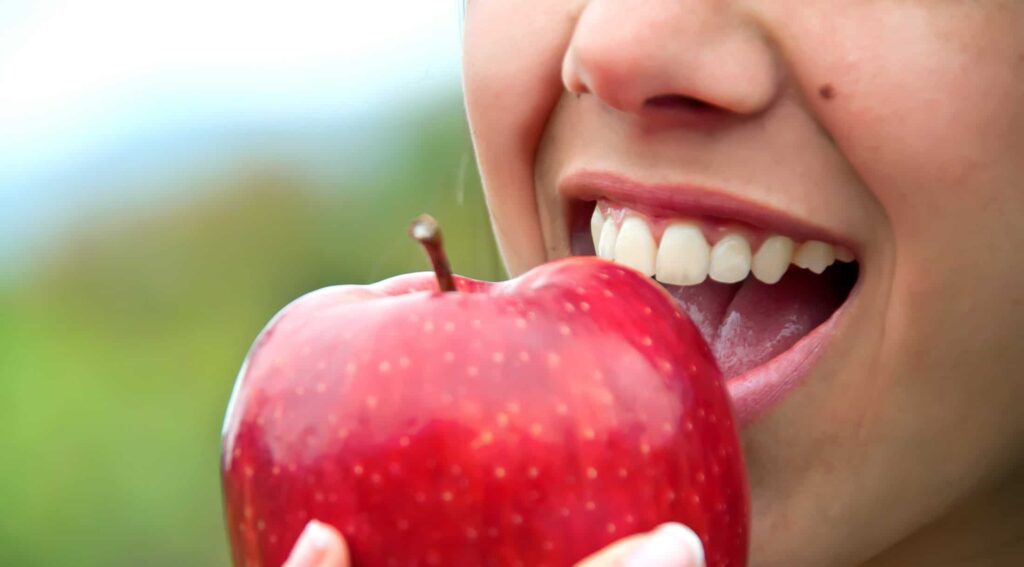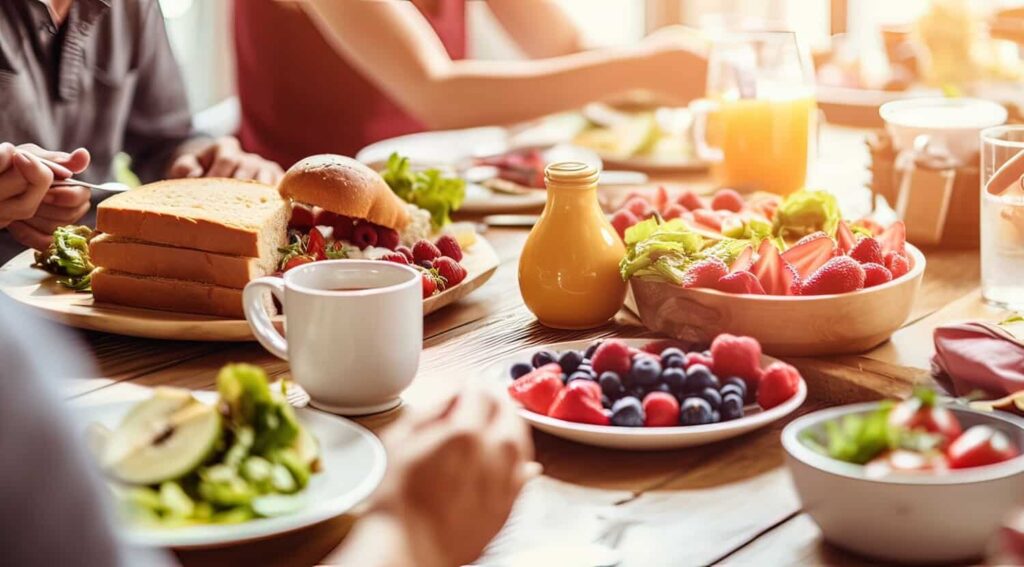Everyone knows the popular saying, “You are what you eat”. It is well known that what you eat and drink affects your health including your dental health.
However, eating healthy does not mean you should consume all foods and drinks in the same way. How we eat and drink also plays an important role on our oral health. For example, some foods and drinks are consumed in a standard method that may have a negative effect on your teeth and gums. Over a period, these methods could negatively affect your teeth and gums, increasing the risk of teeth damage.
Read on to check which foods or drinks you have been eating or drinking wrongly and how can you correct with some adjustments for a longer and healthier oral lifestyle.
Foods To Eat Differently And How.
Fruits
Fruits are full of vitamins, minerals and phytochemicals. Vitamins such as Vitamin C, Vitamin E and different phytochemicals are known to reduce the risk of cardiovascular conditions. Potassium and magnesium found in fruit have also been linked to lower blood pressure. Hence it is important to know which fruits should be eaten differently and why.
Apples
We have seen pictures of people biting into apples. However, biting into an apple with force can cause stress on the front teeth and potentially lead to enamel damage or tooth sensitivity. Cutting an apple into wedges and eating smaller pieces uses the back teeth which are designed to grind, crush, and tear food.
Citrus Fruits
Citrus fruits such as lemons, oranges and grapefruits are acidic and can erode tooth enamel. To minimise prolonged contact with your teeth, you can chew quickly and swallow, so the fruit does not stay for a longer time on your teeth. It is also a good idea to rinse your mouth with water to help neutralise the acidity.
Vegetables
A diet rich in vegetables can lower blood pressure and reduce the risk of cardiovascular disease and stroke. It is also known to prevent certain types of cancer, lower risk of digestive problems, and has a positive effect on blood sugar, which can help to limit your appetite. Knowing how to eat certain types of vegetables is important.
Raw Vegetables
Certain raw vegetables like carrots, cucumbers and broccoli require force to cut them and excessive chewing to break them down. If your teeth are weak, this stress can cause micro cracks or chips which can be accelerated if you suffer from grinding or teeth erosion. It is ideal to cut such vegetables into smaller pieces or steaming them to make them easier to chew.
Corn on the cob
Eating corn on the cob by biting directly into the kernels can put pressure on your front teeth. This can lead to tooth fractures, chipped teeth, or in rare cases, dislodge dental restorations such as fillings or crowns. Hence, it is ideal to cut the kernels off the cob and eating them with a fork or cooking them for salads or soups.
Dry foods
Dry foods can be a healthier alternative to many snacks because they retain their nutritional value.
Popcorn
Popcorn hulls can get wedged in your gums and cause inflammation, so it is advised to brush and floss after eating popcorn. Also, the kernels are very hard and should not be crunched because they can run the risk of breaking a tooth.
Nuts
Whole nuts have a tough exterior which poses a risk to teeth, especially if you bite down with force. The risk of getting micro cracks is higher which can lead to tooth sensitivity. The best practice is to eat nuts in smaller portions or eating slivered nuts to reduce the risk of dental damage.
Tortilla Chips
Who does not love the crunchy noise of tortilla chips? However, the chips break down into tiny shards and as a result, these small slivers can get caught between teeth or near gums and cause inflammation. The trick is to chew the tortilla chips slowly and thoroughly to protect your gums from getting stabbed, and drink water to make sure any residual chips are removed from your mouth.
Make sure to rinse your mouth with water after consuming dry foods with flossing and brushing to remove any remaining residue.
Prepared foods
Some prepared foods can also be detrimental in the way they are eaten.
Pickles
Pickles are acidic and can cause enamel erosion. While eating them in moderation is not going to cause major damage, having them regularly is not good. It is advisable to eat them as part of a meal as opposed to eating them in isolation.
Peanut Butter
Peanut butter is sticky and can stick to the teeth increasing the risk of tooth decay. Many of them are also high in added sugar. It is best to eat natural peanut butter which only includes peanuts and salt.
It is also recommended to eat peanut butter with apple slices. High-fibre foods can help clean your teeth and increase salivation, which can neutralise the acids in your mouth.
Prepared drinks
Drinks made from fruits or vegetables, while healthy may not be ideal in the way you consume them.
Smoothies
Smoothies contain high amounts of natural sugars and acids from fruits. In addition, their thicker texture can cause each sip to stick longer on teeth surfaces, encouraging tooth decay. Seeds or berries can also embed into teeth grooves and under gums, leading to discomfort and tooth decay.
Drink smoothies with a straw to avoid contact with your teeth and rinse your mouth with water when finished.
Conclusion
In addition to changing the way you eat certain foods, do not forget to brush twice and floss once a day.
Want to book an appointment?
Book online by clicking here. Call our friendly team on 3390 6100 or email us.










0 Responses
Thank you for guiding us towards nourishing choices and culinary exploration!